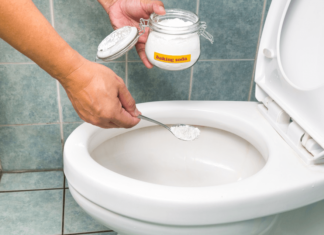
Learn To Forgive Yourself
When you start out in life, you don’t have as many restrictions as you do as an adult. Your life is dictated by routines that surround you. Your habits act in much the same way. You may be accustomed to getting up at a certain time, and many of the things you do are done automatically without even thinking about it.
The problem you have when you decide to change habits is that you are fighting automatic thoughts that your mind has set in place as being standards that are applicable to your life. ONLY YOU can change that, but you need to know that changing something that is already in automatic mode isn’t that easy. For example, when someone loses a partner, it isn’t uncommon for them to make a cup of coffee for that partner by accident, merely because the habit has been learned.
You can be gentle with yourself when changing habits. Try to see slips in your behavior as being something you can fix, rather than something that negatively impacts who you are. We are taught in today’s society to become heroes. We are taught to achieve and the TV and media shows us all the time that failure is a bad thing.
As far as changing habits is concerned, it merely shows us what works and what does not. If you use what would otherwise be described as “failures” as lessons, instead of becoming negative, they become positive reinforcement that certain changes are not suited to you. That’s all it means. This, in turn, helps you to find other habits which do work, so don’t be tough on yourself for being human.
Identifying Underlying Causes
There are always reasons we do the things that we do. I clean my shoes because I like my presentation to be good and want my shoes to last for a longer time. I actually detest seeing dirty shoes and, in my mind, believe that the shine on your shoes shows a certain care for self. All habits come because of an underlying cause. People bathe because it makes them smell better. People wash the dishes because they are taught that germs come from unwashed dishes and that these can affect the health of people in the home. People change their bedclothes because they believe that cleanliness helps to keep family members healthy. There is always a cause for habits. Bad habits are no different.
The boy who bites his nails does so because of nervousness. He is unable to express himself adequately and bites his nails because it helps him to relieve his inner turmoil. The person who drinks may drink socially and may not have a problem, although he who hides behind drinking to obliterate problems does have a problem because rather than tackling the underlying cause, they are obscuring the problem and this has no real and lasting positive effect because when the last drop has been drunk, the problem is still there.
What you need to do is determine what the cause of your habit is. That means self-examination. I once asked someone who needed help and guidance to look at the problems in her life. At first, she put these aside and said that her problem was drinking. It turned out that her problem was not drinking at all. Her problem was lack of bravery. She didn’t have the courage to make new relationships and used alcohol to try to mask this. When we tackled her lack of confidence instead of her drinking problem, the drinking problem went away.
Write down the things that cause you to incorporate unhealthy habits into your life. Some of these may be as follows:
- Overreacting
- Being a perfectionist
- Having high expectations of others
- Having low self-esteem
- Being afraid of failure
When you know what the underlying cause is, it makes it a lot easier to deal with problems and to replace bad habits with positive ones. For example, meditation helped those who were afraid of failure and who had high expectations of others. This slowing down and taking stock of life enabled them to look at life in a different way which was not so judgmental. Low self-esteem was tackled by introducing positive habits which helped the esteem level to rise. High expectations of others was dealt with by learning about empathy and incorporating this into the overall viewpoint of life.
The point being made is that you need to recognize why you have incorporated bad habits into your life because the cause helps you to see quite logically ways in which you can change your life. A man who didn’t eat lunch each day but who chose to grab a snack always blamed time for his lack of respect for his body. “I don’t have time to eat at lunchtime” was always his excuse, although others within his office did find the time to eat. His underlying problem was lack of time management skills and once he was able to employ these and replace bad work habits with good ones, he also found that it was not uncommon for him to eat in a fancy restaurant at lunchtime and take his time enjoying his favorite foods, or simply walk to
the park and enjoy a picnic style lunch that gave him a break from the office environment. Once you find the cause of your bad habits, you can tackle that cause and be sure of all of the changes you make leading you toward being a happier person. Make a list of the bad habits and causes. The examples below will give you a clue as to how to do this:
I sit down too much and do not exercise – Cause: I don’t actually like exercise.
Admitting the true cause isn’t that hard. In the above case, the client was able to find an exercise he considered to be pleasurable and thus changed the bad habit. He enjoyed dance and incorporating a dance routine into his day, he was able to get the exercise he needed.
I am not organized – Cause: I have let everything slip and the job has become too hard to tackle
In this case scenario, the problem is huge and thus avoided. Breaking the problem into small goals enabled this client to sort out his home and his office and become more organized. By breaking the task into really small and manageable changes, he was able to gradually put his life back into order and gained promotion as a result.
Once you know what the cause is, you are able to look at different alternatives that will help you to overcome the cause. It’s almost like stepping across muddy water when you don’t know why you do things. As soon as you do know, you are able to set up a network of stepping stones to take your life forward to the place where you really think you would like to be. That’s when progress is made. You may take some tumbles along the way, but all of these should be used as learning material to enrich who you are rather than in a derogatory fashion which diminishes who you are.
Writing Down Goals
Psychologists have long since recognized that writing things down reinforces them and that you are much more likely to reach goals that are recorded in some way, whether this is in writing or on your goal making app. There’s a very good exercise that you can do to find out what your goals are. Close your eyes and make sure that you are seated in an area where you are not interrupted by noise.
Think of something that makes you very happy. You may have to dig into childhood memories or even take substance from ambitions, but visualize yourself enjoying life and enjoying doing something you always wanted to do. When you use visualization, try to see the whole picture. For example, if you are thinking of a childhood memory, see yourself within that visualization and see what you were doing and feel the emotions that went along with that very happy situation. The reason that you do this is to replace negative thought with the positive reinforcement that you are capable of feeling all of these positive things.*
Now, take your journal and write down a few goals. Where people come unstuck is by setting their sights too high. For example, if you have been sluggish for the past ten years and have let your body go by eating the wrong foods and not taking the right amount of exercise, you are hardly likely to become an overnight athlete. Set small goals that you are likely to be able to achieve. Remember to treat them like stepping stones in the river of life. Each stepping stone brings you closer to what it is that you want to achieve.
For example, if you have a lack of self-esteem, it may be caused by your past relationships with people, but there’s nothing to stop you from building up your esteem yourself, so that positive experiences eventually take over from the negative. For example, you may see yourself as worthless. Thus, give yourself a goal that gives you worth. Some goals that are useful in a case scenario such as this are:
- Do a good deed with no expectation of return
- Treat your body to some kind of delight that makes you feel good
- Join in with a class that covers things you enjoy such as art
- Do something nice for yourself
All of these activities can help you to build self-esteem and can replace negative thoughts that you may have toward yourself. It doesn’t matter how small the task is, the goal should be set and adhered to. It could be something as simple as making the next door neighbor a cake or mending their fence, but if you do things for others, remember you are doing it for yourself and should not expect any praise from anyone as payment for doing that task.
This level of humility is important. It’s the fact that you did the task that helps you to achieve the goal, rather than the emotional overload of expectations. Let me try and explain that in a clearer manner. If a parent decides to pay a lot of money for his/her child’s education, then that’s the parent’s choice. If the parent then pushes the child and makes the child’s life unhappy because the child does not respond well to that gesture, it would be wrong for the parent to make the child feel unworthy. The giving should be given without strings. Thus, mending your neighbor’s fence is done simply as a good gesture in a voluntary manner. Your neighbor may thank you or may say nothing at all, but the goal isn’t to receive praise. It is to do what you set out to do and the reward is in knowing that you reached the goal.
Too many people put stock in other people’s opinions. If you are among those who are constantly seeking approval, chances are that while you think in this way, you will always be disappointed because people don’t always respond in the manner you expect. Be mindful of your own life. Be mindful that your actions please YOU and be satisfied that your goals are reached without seeking the approval of others. When you manage to do that, you build your self-esteem and you also take away the negative element of helping others who do not appreciate you for who you are.
Setting Out A Time Scale
Don’t expect miracles to happen overnight. They rarely do. It takes a while to incorporate a new habit into your life. In fact, although you may think you can do it in as little as a month, researchers found that it takes at least 3 months for new habits to become automatic. Thus, you need to get yourself into the state of mind that accepts that changes take time. It really depends upon what habits you are trying to change. For example, a no smoking regime with patches is worked over a three month period, while you may be able to make dietary changes fairly rapidly and succeed.
Allowing Yourself To Make Mistakes
Only a perfectionist would expect a whole new lifestyle to happen without pauses or lapses back into bad habits. Remember that habits may have been learned over a period of years so don’t be too hard on yourself when you make a mistake. Recognize the mistake. Diary it and see how long you can go before you make the next one. However, do not feel remorse and failure. Once you see yourself as a failure, you reinforce self-esteem issues and that’s not what it’s all about. Praise yourself for the effort and start again. No one is perfect and going forward in a positive way will give you better results than simply getting angry with yourself and feeling negative thoughts.
















